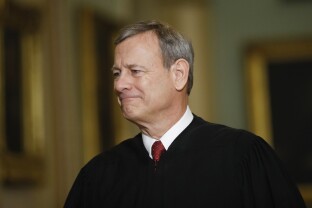When lobbyists and corporate interests want to influence policy going forward, they’ll be putting more resources toward the judiciary than the president.
When the Supreme Court overturned Chevron deference last month, it also upped the ante for corporate interests to land their cases in a favorable court.
Before the landmark ruling, presidential administrations could change government rules and expect courts to side with them. Now, a judge’s decision on a government rule becomes “locked in” as a judicial precedent for future challenges — even if the executive branch tries to change it in the future.
